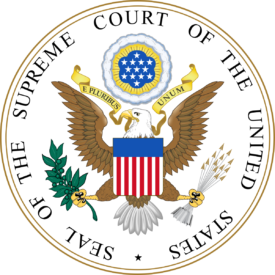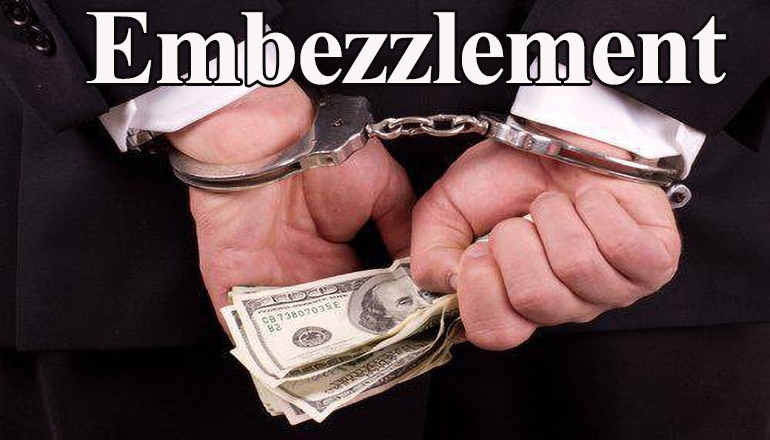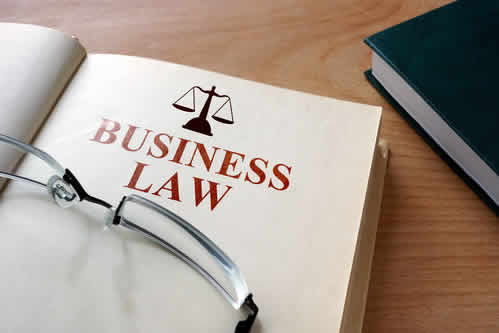Arbitration and Mediation
Arbitration
So, you signed a contract with an arbitration provision and the other party to the contract has sent you a demand for arbitration. What does that mean and what do you do now?
Agreements to refer disputes to arbitration generally have a special status in the eyes of the law as arbitration is a preferred method of dispute resolution in the law. Arbitration is private, meaning that the proceedings are hidden from public view and the results are not made public. This means that an adverse ruling against you will not become a precedent.
Some of the advantages of arbitration are:
- In contrast to litigation, where one cannot “choose the judge”, arbitration allows the parties to choose their own tribunal. This is especially useful when the subject matter of the dispute is highly technical: arbitrators with an appropriate degree of expertise (for example, surveying expertise in the case of a construction dispute, or expertise in commercial property law in the case of a real estate dispute) can be chosen.
- Arbitration is often faster than litigation in court.
- Arbitral proceedings and an arbitral award are generally non-public, and can be made confidential.
- In arbitral proceedings the language of arbitration may be chosen, whereas in judicial proceedings the official language of the country will be automatically applied.
- Because of the provisions of the New York Convention of 1958, arbitration awards are generally easier to enforce in other nations than court verdicts.
- In most legal systems there are very limited avenues for appeal of an arbitral award, which is sometimes an advantage because it limits the duration of the dispute and any associated liability.
Some of the disadvantages of arbitration are:
- If the arbitration is mandatory and binding, the parties waive their rights to access the courts and to have a judge or jury decide the case.
- There is sometimes a disconnect between the presumption of confidentiality and the realities of disclosure and publicity imposed by the courts, arbitrators, and even the parties themselves.
- If the arbitrator or the arbitration forum depends on the corporation for repeat business, there may be an inherent incentive to rule against the consumer or employee.
- There are very limited avenues for appeal, which means that an erroneous decision cannot be easily overturned.
- Although usually thought to be speedier, when there are multiple arbitrators on the panel, juggling their schedules for hearing dates in long cases can lead to delays.
- In some legal systems, arbitration awards have fewer enforcement options than judgments; although in the United States arbitration awards are enforced in the same manner as court judgments and have the same effect.
- Discovery may be more limited in arbitration or entirely nonexistent.
- Unlike court judgments, arbitration awards themselves are not directly enforceable. A party seeking to enforce an arbitration award must resort to judicial remedies, called an action to “confirm” an award.
Mediation
Mediation is a structured, interactive process where an impartial third party neutrally assists disputing parties in resolving conflict through the use of specialized communication and negotiation techniques. All participants are encouraged to actively participate in the process. Mediation is a “party-centered” process in that it is focused primarily upon the needs, rights, and interests of the parties. The mediator uses a wide variety of techniques to guide the process in a constructive direction and to help the parties find their optimal solution.
The term mediation broadly refers to any instance in which a third party helps others reach an agreement. More specifically, mediation has a structure, timetable, and dynamics that “ordinary” negotiation lacks. The process is private and confidential, possibly enforced by law. Participation is typically voluntary. The mediator acts as a neutral third party and facilitates rather than directs the process. Mediation is becoming a more peaceful and internationally accepted solution to end the conflict. Mediation can be used to resolve disputes of any magnitude.
Cost
While a mediator may charge a fee comparable to that of an attorney, the mediation process generally takes much less time than moving a case through standard legal channels. While a case in the hands of a lawyer or a court may take months or years to resolve, mediation usually achieves a resolution in a matter of hours. Taking less time means expending less money on hourly fees and costs.
Confidentiality
While court hearings are public, mediation remains strictly confidential. No one but the parties to the dispute and the mediator or mediators know what happened. Confidentiality in mediation has such importance that in most cases the legal system cannot force a mediator to testify in court as to the content or progress of mediation. Many mediators destroy their notes taken during a mediation once that mediation has finished. The only exceptions to such strict confidentiality usually involve child abuse or actual or threatened criminal acts.
Control
Mediation increases the control the parties have over the resolution. In a court case, the parties obtain a resolution, but control resides with the judge or jury. Often, a judge or jury cannot legally provide solutions that emerge in mediation. Thus, mediation may produce a result that is mutually agreeable for the parties.
Compliance
Because the result is attained by the parties working together and is mutually agreeable, compliance with the mediated agreement is usually high. This further reduces costs, because the parties do not have to employ an attorney to force compliance with the agreement. The mediated agreement can be fully enforceable in a court of law.
Mutuality
Parties to a mediation are typically ready to work mutually toward a resolution. In most circumstances the mere fact that parties are willing to mediate means that they are ready to “move” their position. The parties thus are more amenable to understanding the other party’s side and work on underlying issues to the dispute. This has the added benefit of often preserving the relationship the parties had before the dispute. Parties as a part of the mediation are encouraged to negotiate on the basis of interests rather than positions that they hold.
Support
Mediators are trained in working with difficult situations. The mediator acts as a neutral facilitator and guides the parties through the process. The mediator helps the parties think “outside of the box” for possible solutions to the dispute, broadening the range of possible solutions.
The highly experienced lawyers at Lustig & Wickert have conducted hundreds of arbitrations and mediations. It is that experience that makes the difference when you’re involved in a commercial dispute. Call us at 847.509.9090 for a free confidential consultation and evaluation.
Alternative Fee Arrangements
Lustig & Wickert is committed to creative alternative fee arrangements with its clients when dealing with fees. We understand the need to tailor our agreements to best serve our clients interests. We understand that traditional fee agreements do not meet the needs of all clients. We will address our fees at the outset of our relationship and will develop contingency or other agreements that are based upon results.
Anti-Trust Litigation
Anti-Trust litigation, also referred to as “anti competition laws,” are statutes developed by the U.S. Government to protect consumers from predatory business practices by ensuring that fair competition exists in an open-market economy. We have decades of experience in dealing with complex antitrust and trade regulation matters. We have been privileged to be counsel for both plaintiffs and defendants in a wide range of antitrust cases involving allegations of price-fixing, monopolization, price discrimination and patent misuse. Our experience covers both trial and appellate matters, including a case before the Supreme Court of the United States. These cases involve many industries such as petroleum, insulation, snack foods, milk, heavy equipment, transportation rates and tires.

Appellate Litigation
An appellate court, commonly called an appeals court, is a court of law empowered to hear an appeal of a trial court or other lower tribunal. Appeals are usually decided by panels of three judges. The Court of Appeals does not receive additional evidence or hear witnesses; rather the judges make their decision based on the written record of the case in the trial court, as well the briefs submitted by the parties, and possibly oral argument.
When a case reaches an appellate court, the stakes are high. Appeals often involve protection of substantial hard-won judgments or the last opportunity to overturn adverse decisions. Lustig & Wickert, P.C. believes that to be successful in appellate litigation, a law firm requires not only skill. but also experience.
Lustig & Wickert, P.C. has that vital expertise, having successfully argued cases before many federal courts of appeal and appellate courts of Illinois. We have successfully won judgments in business litigation involving tens of millions of dollars. We have also successfully obtained the reversal of adverse decisions against our clients. We bring the skill, experience and expertise necessary to win, and are committed to using all our abilities and talents when a client’s case reaches an appellate court.

Intellectual Property Protection
Intellectual property (IP) refers to creations of the mind, such as inventions; literary and artistic works; designs; and symbols, names and images used in commerce. IP is protected through laws creating, for example, patents, copyrights, trademarks, and trade secrets which enable people to earn recognition or financial benefit from what they invent or create. By striking the right balance between the interests of innovators and the wider public interest, IP law aims to foster an environment in which creativity and innovation can flourish. Intellectual property protection involves the enforcement of the creators rights.
The attorneys at Lustig & Wickert are experienced in a wide variety of intellectual property protection. We have successfully handled the prosecution and defense of patent, copyright, trademark, and trade dress infringement claims. We also have extensive experience in trade secret protection.
Lustig & Wickert brings real world regulatory and trial experience to intellectual property protection and litigation. Often intellectual property lawyers have the technical knowledge but become bogged down in the technical aspects of the case. As trial attorneys, we can simplify complex issues so a jury can understand them. We have been engaged by intellectual property attorneys as co-counsel to handle the trial of patent and trade secret matters. Our lawyers have been involved in cases as diverse as distillation equipment design, computer software, ceramic welding, and folding chair design.

Fraud & Embezzlement
 If you have been the victim of fraud or embezzlement, it is crucial that you act quickly to recover your money and preserve your rights. Now is the time when experience matters. Lustig & Wickert has successfully handled numerous fraud and embezzlement cases and can answer your questions and provide you with a strategic plan to recover your money.
If you have been the victim of fraud or embezzlement, it is crucial that you act quickly to recover your money and preserve your rights. Now is the time when experience matters. Lustig & Wickert has successfully handled numerous fraud and embezzlement cases and can answer your questions and provide you with a strategic plan to recover your money.
Embezzlement is the act of withholding assets for the purpose of conversion (theft) of such assets, by one or more persons to whom the assets were entrusted to be held or used for specific purposes. Embezzlement is a type of financial fraud. For example, a lawyer might embezzle funds from the trust accounts of their clients; a financial advisor might embezzle the funds of investors; a trusted employee or partner might embezzle funds from a bank account, take improper expense reimbursements, or charge improper expenses to the company credit card.
Embezzlement is a premeditated crime, performed methodically, with precautions that conceal the theft of the property, and which occurs without the knowledge or consent of the affected person. Often it involves the trusted individual embezzling only a small proportion of the total of the funds or resources they control, in an attempt to minimize the risk of detection of the theft. When successful, embezzlement may continue for many years without detection. The victims often realize that the funds are missing and that they have been duped by the embezzler, only when a relatively amount of cash is needed at one time; the funds are called upon for another use; or when a major institutional event, such as a reorganization (the closing or moving of a plant or business office, or a merger/acquisition, purchase or sale of a firm) requires the complete and independent accounting of all real and liquid assets.
In the United States, embezzlement is a statutory offense that, depending on the circumstances, may be a crime under state law, federal law, or both. Typically, the criminal elements of embezzlement are the fraudulent conversion of the property of another person by a person who has lawful possession of the property.
Methods of Embezzlement
Embezzlement sometimes involves falsification of records in order to conceal the activity. Embezzlers commonly steal relatively small amounts repeatedly, in a systematic or methodical manner, over a long period of time, although some embezzlers steal one large sum at once. Some very successful embezzlement schemes have continued for many years before being detected due to the skill of the embezzler in concealing the nature of the transactions or their skill in gaining the trust and confidence of employers, investors or clients, who are then reluctant to “test” the embezzler’s trustworthiness by forcing a withdrawal of funds.
Embezzling should not be confused with skimming, which is under-reporting income and pocketing the difference. For example, in 2005, several managers of the service provider Aramark were found to be under-reporting profits from a string of vending machine locations in the eastern United States. While the amount stolen from each machine was relatively small, the total amount taken from many machines over a length of time was very large. A smart technique employed by many small-time embezzlers can be covered by falsifying the records. (Example, by removing a small amount of money and falsifying the records, the register would be technically correct, while the manager would remove the profit and leave the float in, this method would effectively make the register short for the next user and throw the blame onto them)
Another method is to create a false vendor account and supply false invoices to the company being embezzled so that the checks that are issued appear completely legitimate. Yet another method is to create non-existent phantom employees, who are paid with payroll checks.
The latter two methods should be uncovered by routine audits, but often aren’t if the audit is not sufficiently in-depth, because the paperwork appears to be in order. A publicly traded company must change auditors and audit companies every five years. The first method is easier to detect if all transactions are by check or other instrument, but if many transactions are in cash, it is much more difficult to identify. Employers have developed a number of strategies to deal with this problem. In fact, cash registers were invented just for this reason.
Some of the most complex (and potentially most lucrative) forms of embezzlement involve Ponzi-like financial schemes where high returns to early investors are paid out of funds received from later investors duped into believing they are themselves receiving entry into a high-return investment scheme. The Madoff investment scandal is an example of this kind of high-level embezzlement scheme, where it is alleged that $65 billion was siphoned off from gullible investors and financial institutions.
Safeguards Against Embezzlement
Internal controls such as separation of duties are common defenses against embezzlement. For example, at a movie theater, the task of accepting money and admitting customers into the theater is typically broken up into two jobs. One employee sells the ticket, and another employee takes the ticket and lets the customer into the theater. Because a ticket cannot be printed without entering the sale into the computer (or, in earlier times, without using up a serial-numbered printed ticket), and the customer cannot enter the theater without a ticket, both of these employees would have to collude in order for embezzlement to go undetected. This significantly reduces the chance of theft, because of the added difficulty in arranging such a conspiracy and the likely need to split the proceeds between the two employees, which reduces the payoff for each.
In the daily crush of business, we take shortcuts. We want to trust those that we have placed our trust in. Often, when the embezzler is unmasked, the first reaction is often “it can’t be”, or “you must be kidding”. No one sees it coming. That is because the embezzler has somehow earned your trust and confidence. Remember that the word “Con” owes its origin to the word “confidence”.
When confronted with a strong suspicion that an embezzlement has occurred, you need to move quickly and decisively. Most important is the goal of limiting further losses, obtaining evidence and preserving evidence. However, equally important is the goal of recovering the money that has been stolen. In certain cases, an employer would also be entitled to receive back all salary and other compensation it paid to the employee while he was stealing from them. The success or failure of the recovery effort is often influenced by how long it took the employer to decide to act.
Lustig & Wickert’s experience in handling numerous fraud and embezzlement cases gives us insight into what happened, how it happened, how to stop the fraud or embezzlement while preserving the evidence, and your rights. We know what works and what doesn’t. We have resources available for things like private investigators, forensic accounting, IT, data reconstruction and data recovery that are sometimes required. Under certain circumstances, we may even be able to freeze the embezzlers’ assets before they can sell or transfer them. It is much more difficult to find and chase stolen assets once they have been moved. Lustig & Wickert also has vast experience working with Federal and State law enforcement agencies investigating fraud and embezzlement. We have also been successful in claims by our clients against their commercial insurance carriers for coverage of the loss.
Know this; that time is not your friend when you have been defrauded or embezzled. The quicker you act, the more likely it is that you will stop further losses and recover what was taken from you. Call or email us today for a free and confidential consultation.
Business Law

General Counsel Services
Lustig & Wickert provides general counsel services to small to medium size businesses in Illinois. Most of our clients can’t afford to hire a full-time in-house lawyer, so we give them the edge of having a business focused law firm on-call without the expense of having a full-time business attorney on staff.
Corporations | Limited Liability Companies
We form new corporations and limited liability companies for our clients on a same day basis at no extra charge. This means that your new business can be up and running in 24 hours with all the necessary formalities. You will be able to open a bank account, hire personnel, sign contracts and conduct business immediately.
Common Business Legal Needs
Lustig & Wickert assists its clients with the legal needs common to most businesses, such as reviewing leases, employment agreements, non-compete agreements, non-disclosure agreements, independent contractor’s agreements and vendor contracts. We routinely advise our clients on employment matters including hiring and termination and help them navigate the minefield of laws and regulations regarding independent contractors, trade secrets, trademarks and intellectual property rights. When the time comes to terminate an employee, we can recommend severance or termination agreements and advise our clients through the myriad laws impacting the employment relationship. We also help our clients structure new business relationships and create the agreements that make them work. We can answer your legal questions and give you solid business advice you can rely on. Whatever your business legal needs, trust Lustig & Wickert to handle them properly.
Business Purchases and Sales
We are highly skilled at handling the purchase and sale of business interests, including stock purchases, asset purchases, tax-deferred exchanges, and mergers. We are experienced at everything from negotiation and contracting, to closing. We work closely with our client’s tax advisors to structure proposed transactions in tax advantaged ways. We review critical documents such as security filings, liens, real estate leases, loan documents, employment agreements, non-competition agreements, vendor contracts, insurance policies, patents, trademarks, copyrights, and help develop transactional strategies. Once a contract has been signed and the deal formalized, we work closely with our clients and their accountants to close the transaction and transfer the business interest.
Shareholder Agreements
Lustig & Wickert can recommend shareholder agreements and operating agreements which impose rights, obligations and restrictions upon the individual shareholders, partners, and owners of a businesses. These types of agreements frequently determine the outcome in the event of death, disability, divorce, termination of employment, purchase or sale of an interest in the business, deadlock and failure to agree.
Corporate Compliance
No matter what industry your business is in, corporate compliance affects your business regularly. From filing required reports with governmental agencies to conducting annual meetings of the shareholders of a corporation or the members of a limited liability company, corporate compliance is an essential part of your business. Corporate compliance is a name we give the process of making sure your company’s management and employees follow the laws, regulations, standards, and ethical practices that apply to your business. Effective corporate compliance will cover both internal policies and rules and federal and state laws. Enforcing compliance in corporate policy will help your company prevent and detect violations of rules and laws. This can save your business from fines and lawsuits and protect the owners and operators from personal liability. Corporate compliance also lays out expectations for company management and employee behavior, helps your staff stay focused on your company’s broader goals, and helps operations run smoothly. Ask us how we can assist your business with its corporate compliance obligations.
Franchises
If you are an existing franchisor or franchisee, or are considering becoming one of them, we can help. Unlike many law firms, we take a balanced approach by representing both franchisees and franchisors (not in the same system of course). By knowing both sides, we are better able to help our clients navigate difficult issues. We have a deep understanding of the relationship dynamics that underpin all franchise systems. Even the best franchises have disputes and issues with their franchisor. We know franchising and we can help.
Registered Agents
Corporate Law
 The role of corporate lawyers is to ensure the legality of commercial transactions involving our clients, advising corporations on their legal rights and responsibilities, including the duties and responsibilities of shareholders, directors and corporate officers. We are familiar with of all aspects of contract law, accounting, bankruptcy, intellectual property rights, licensing, and the laws specific to the business of our clients.
The role of corporate lawyers is to ensure the legality of commercial transactions involving our clients, advising corporations on their legal rights and responsibilities, including the duties and responsibilities of shareholders, directors and corporate officers. We are familiar with of all aspects of contract law, accounting, bankruptcy, intellectual property rights, licensing, and the laws specific to the business of our clients.
Whether negotiating the acquisition of a business or assisting a small Internet start-up company, corporate lawyers are involved in advising businesses on their numerous legal rights, responsibilities, and obligations. General corporate practice involves handling a wide range of legal issues for businesses.
As corporate lawyers we also advise our clients on issues concerning trade secrets and other types of intellectual property such as patent and trademark licensing; antitrust issues; real estate; and contractual matters such as technical assistance agreements between our clients company’s and outside consultants hired to provide computer and other information technology assistance.
New businesses are typically faced with numerous business decisions, including whether to structure the business as a corporation, a partnership, a limited liability company, a sole proprietorship, limited liability partnership, or even as a joint venture (a partnership arrangement with an established company). Determining the appropriate business structure requires a thorough understanding of how to raise initial capital; how to finance the business; the implications of federal and state tax requirements; and how to limit liability for the stakeholders. As part of determining how to structure the business, we can also assist the start-up venture with matters such as analyzing a business plan and different methods of financing.
We can also participate in “due diligence” checks concerning the company that is to be acquired. This means that our staff can review the company finances, employment agreements, intellectual property, environmental liabilities, real estate leases, and pending litigation involving the company and then advise our clients about the risks.
We can also help our clients determine what portion of their company will be sold and whether the sale will be structured as a sale of the company’s assets or a sale of the stock of the company. We can draft non-compete agreements stipulating that the seller of the business cannot immediately compete with the buyer’s newly acquired business. We can also assist with matters such as the transfer of technology and intellectual property from one entity to another.
We are experienced in conducting internal investigations involving fraud and embezzlement by shareholders, officers, directors and employees. We have successfully recovered millions of dollars and helped save corporations from going out of business as a result of inside thefts.
We are experienced at corporate compliance such as acting as an entities registered agent and the filing of state reports necessary to maintain an entity in good legal standing. We also can prepare minutes of the required annual meetings of the entities owners and managers to document the official actions taken, such as corporate resolutions.
As a business client, we hope that you will consider Lustig & Wickert as the quarterback of your businesses legal team.

